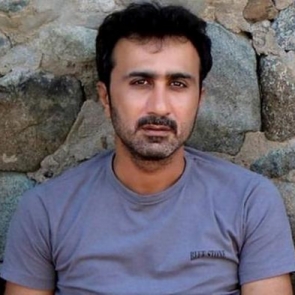On 20 April 2020, the body of exiled Pakistani human rights defender Sajid Hussain was found in a lake in Sweden. Murder or suicide? The investigation was inconclusive but the circumstances suggest murder and the pattern strongly suggests the involvement of Pakistani state agents.
Sajid Hussain was born on 16 January 1981 into a well-known political family in Balochistan. His uncle Ghulam Mohammad Baloch was a leading figure in the Balochistan nationlist movement and was assassinated by the Pakistan military in 2009.
After studying economics at Karachi University, Hussain began working as a journalist in 2007, focusing mainly on stories of enforced disappearances in Balochistan as well as exposing one of the most influential drug lords in Pakistan.
But it was because of his 2012 investigations into a story about enforced disappearances for Reuters, that Sajid began to face threats, anonymous phone calls to his home and sensed that he was being followed. Plainclothes police officers turned up at his house, questioned his family and took his documents and his laptop.
Security services then turned up at the door of a hotel room where Sajid and a Reuters journalist were working, looking for him. Sajid escaped through another door and fled home. He escaped to Oman a week later.
Sajid arrived in Sweden in 2018 and was granted asylum in 2919 and felt that he had finally found a safe space where he could continue his work as a journalist and academic. Sajid was the co-founder of the online Balochistan Times and continued to report on human rights issues in his country.
On 02 March 2020, Sajid travelled by train to Uppsala where he was to move into a new apartment prior to starting a masters programme in the university: At the time he was making plans to expand the newspaper and was also in the process of organising for his wife and children to join him in Sweden. From this point on there was no further news of Sajid.
On 30 April 2020, Sajid’s brother Wajid received a phone call telling him that his brother’s body had been found in the River Fyris, north of Stockholm. While the autopsy report was inconclusive and while the authorities have suggested the possibility of the death being a suicide, his family and colleagues believe that there was nothing to suggest suicide and that he was killed because of his human rights work.
Sajid Hussain is the second Pakistani human rights defender, forced to go into exile because of threats to their lives, to die in unexplained circumstances. In December 2020 the body of Karima Baloch (a cousin of Sajid’s) was found in a lake near her home in Canada – another possible suicide. Shortly before her death she had received threats that she would receive a Christmas gift that would teach her a lesson.
These killings are part of a pattern of harassment and intimidation of human rights defenders in exile, suggesting the involvement of Pakistani state agents. Pakistan is one of the world’s most dangerous countries for press freedom and journalists, with it ranking at 142 out of 180 countries in RSF’s 2019 World Press Freedom Index. Threats, intimidation and harassment against human rights defenders by Pakistani authorities is unfortunately not limited to those living within its borders. Exiled journalists and human rights defenders have suffered direct intimidation and also threats against their families in Pakistan. In July 2021 the Metropolitan Police’s Counter Terrorism Unit charged a man named Mohammad Gohir Khan with plotting to assassinate prominent Pakistani blogger Waqas Ahmad Goraya. In addition, intelligence services in multiple countries have reported credible death threats against exiled Pakistanis, who were critical of that country’s military, dating back to 2018. These include prominent figures such as scholar Ayesha Siddiqa and journalist Taha Siddiqui.
Journalists in Pakistan are the victims of both state and non-state actors. On 5 September 2020, television presenter and women’s rights activist Shaheena Shaheen was shot dead, allegedly by her husband, who objected to her profile and to her refusal to give up her human rights work.
According to the Committee to Protect Journalists, more than 60 journalists have been killed in Pakistan in direct relation to their work.


